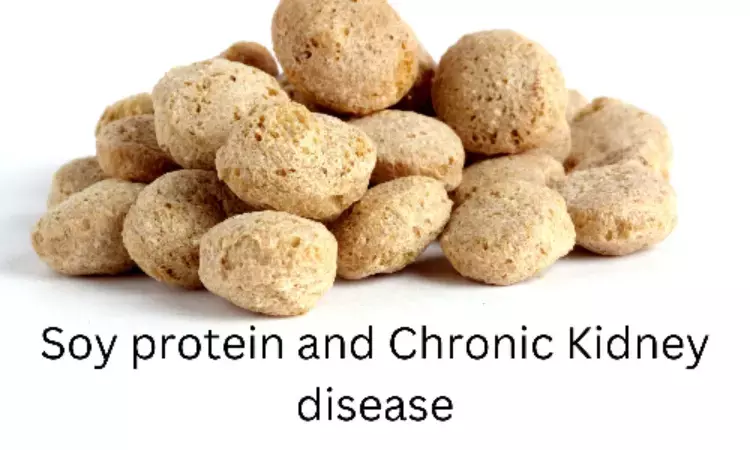- Home
- Medical news & Guidelines
- Anesthesiology
- Cardiology and CTVS
- Critical Care
- Dentistry
- Dermatology
- Diabetes and Endocrinology
- ENT
- Gastroenterology
- Medicine
- Nephrology
- Neurology
- Obstretics-Gynaecology
- Oncology
- Ophthalmology
- Orthopaedics
- Pediatrics-Neonatology
- Psychiatry
- Pulmonology
- Radiology
- Surgery
- Urology
- Laboratory Medicine
- Diet
- Nursing
- Paramedical
- Physiotherapy
- Health news
- Fact Check
- Bone Health Fact Check
- Brain Health Fact Check
- Cancer Related Fact Check
- Child Care Fact Check
- Dental and oral health fact check
- Diabetes and metabolic health fact check
- Diet and Nutrition Fact Check
- Eye and ENT Care Fact Check
- Fitness fact check
- Gut health fact check
- Heart health fact check
- Kidney health fact check
- Medical education fact check
- Men's health fact check
- Respiratory fact check
- Skin and hair care fact check
- Vaccine and Immunization fact check
- Women's health fact check
- AYUSH
- State News
- Andaman and Nicobar Islands
- Andhra Pradesh
- Arunachal Pradesh
- Assam
- Bihar
- Chandigarh
- Chattisgarh
- Dadra and Nagar Haveli
- Daman and Diu
- Delhi
- Goa
- Gujarat
- Haryana
- Himachal Pradesh
- Jammu & Kashmir
- Jharkhand
- Karnataka
- Kerala
- Ladakh
- Lakshadweep
- Madhya Pradesh
- Maharashtra
- Manipur
- Meghalaya
- Mizoram
- Nagaland
- Odisha
- Puducherry
- Punjab
- Rajasthan
- Sikkim
- Tamil Nadu
- Telangana
- Tripura
- Uttar Pradesh
- Uttrakhand
- West Bengal
- Medical Education
- Industry
Substituting animal protein with Soy protein pronounces cardio and nephroprotection in CKD

Moscow: According to a study published in the Journal of Renal Nutrition, substituting animal protein with Soy Protein plus Keto analogues of essential amino acids (SP + KA) offers nephroprotection and cardioprotection in chronic kidney disease (CKD) patients. This is better than the conventional Low Protein Diet plus KA in patients with CKD (3b-4 stages). These effects are more pronounced with well-maintained nutritional status in these cases.
Previous studies have mentioned that a low-protein diet (LPD) combined with KA offers cardio and nephroprotection in CKD patients. The partial replacement of the animal protein with dietary SP offers more pronounced nephro and cardioprotection in such cases. However, there is a need for more data in this context, and more data must be collected.
Considering this, the present RCT, led by Ludmila Yu. Milovanova compared the effects of 2 types of diets on nephro and cardioprotection in CKD parameters. These were the main parameters.
The study could be summarised as follows:
- The study included 85 CKD patients (stages 3b to 4).
- Researchers monitored 43 patients of Group 1 who consumed LPD with soy (60% SP + 40% of other vegetable proteins) plus KA in 12 month period.
- Forty-two patients of the control group/Group 2 consumed conventional LPD (60% animal protein and +40% of vegetable protein) + KA in 12 months.
The researchers compared conventional LPD vs. one with primarily soy protein. On substituting animal protein with SP, there was a delayed decrease in eGFR (−5.9% vs −11.3%)
- SP diet delayed the increase in left ventricle hypertrophy (+4.7% vs +12.3%), central systolic BP (+2.6% vs +13.0%), and augmentation index (+7.6% vs +23.3%).
- SP delayed a decrease in lean body mass in males and females, +0.9% vs −11.2% and −1.8% vs −10.3%, respectively.
- SP delayed an increase in phosphorus, cholesterol and urea serum levels, with values recorded as −10.3% vs +13.0%, −10.7% vs −3.4% and +6.3% vs +19.6%, respectively, with the soy protein diets.
To conclude, soy proteins in CKD patients offer nephroprotection and cardioprotection. This is because:
- It maintains muscle mass, thereby maintaining nutritional status.
- It slows down the decrease in eGFR.
- It diminishes hypertrophy of the left ventricle.
- It reduces the serum levels of phosphorus, cholesterol and urea.
Further reading:
Naga, Yassin Shams Eldien, et al. "Single Incision Needle Knife Biopsy for the Diagnosis of Gastrointestinal Subepithelial Tumors: A Systematic Review and Meta-Analysis." Gastrointestinal Endoscopy, Elsevier BV, Nov. 2022. https://www.jrnjournal.org/article/S1051-2276%2822%2900204-7/pdf#articleInformation
BDS, MDS in Periodontics and Implantology
Dr. Aditi Yadav is a BDS, MDS in Periodontics and Implantology. She has a clinical experience of 5 years as a laser dental surgeon. She also has a Diploma in clinical research and pharmacovigilance and is a Certified data scientist. She is currently working as a content developer in e-health services. Dr. Yadav has a keen interest in Medical Journalism and is actively involved in Medical Research writing.
Dr Kamal Kant Kohli-MBBS, DTCD- a chest specialist with more than 30 years of practice and a flair for writing clinical articles, Dr Kamal Kant Kohli joined Medical Dialogues as a Chief Editor of Medical News. Besides writing articles, as an editor, he proofreads and verifies all the medical content published on Medical Dialogues including those coming from journals, studies,medical conferences,guidelines etc. Email: drkohli@medicaldialogues.in. Contact no. 011-43720751


